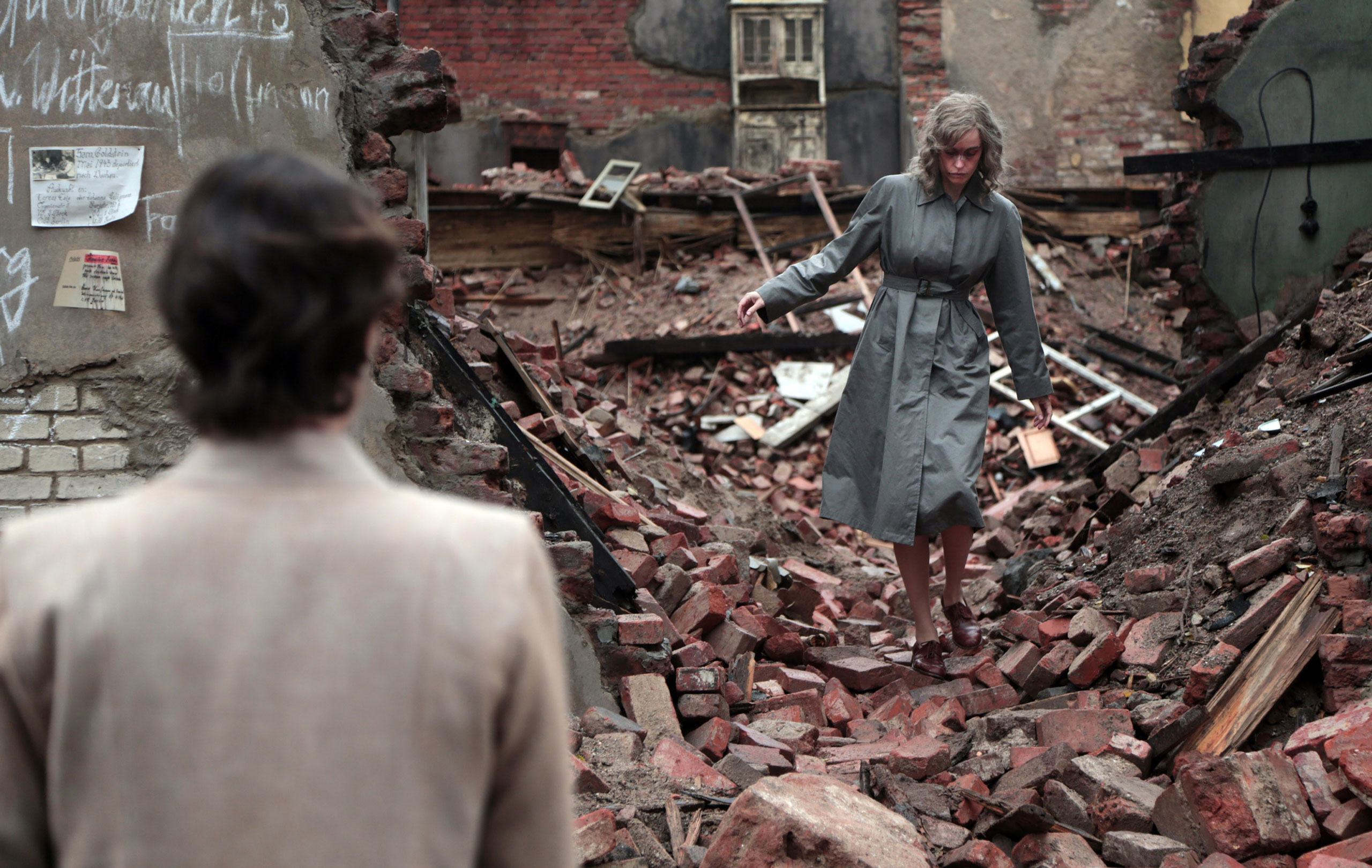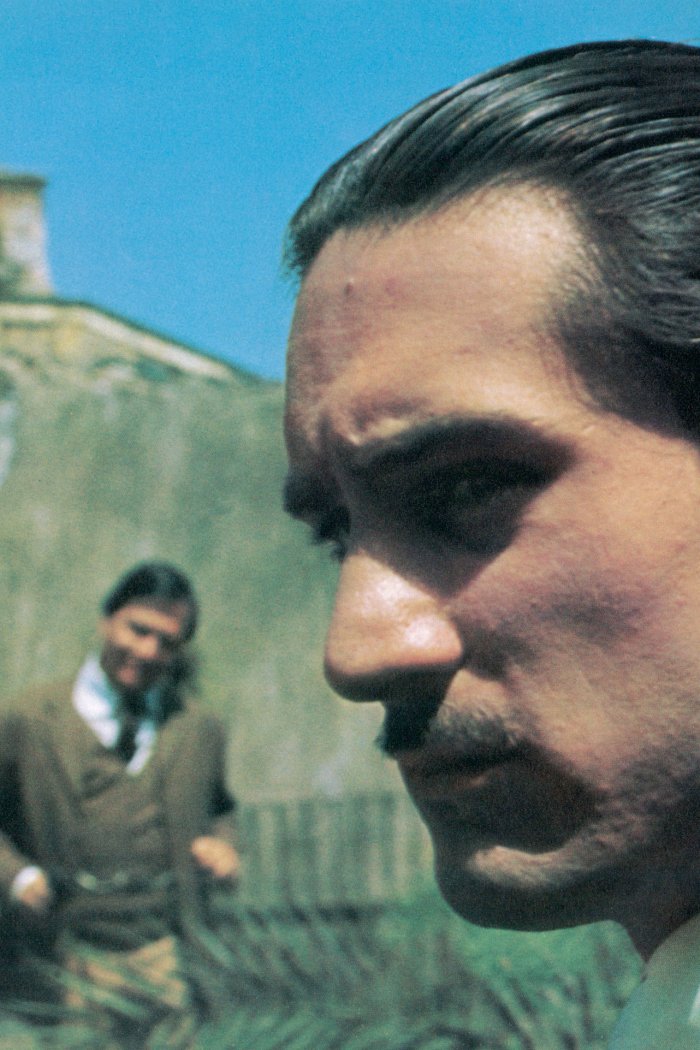In a story where the man can’t see the woman right in front of him—the theme Hitchcock mined so hypnotically in Vertigo—no one comes out a winner. The woman may suffer more deeply, but she can at least emerge with her dignity intact. In Christian Petzold’s rapturous film noir Phoenix, based on a novel by French crime writer Hubert Monteilhet and set in a nearly demolished post-World War II Berlin, it’s Ronald Zehrfeld’s Johnny—a piano player who survived the war by betraying others—who’s the biggest loser of all. He’s blind to the woman who loves him most in the world, Nina Hoss’ Nelly, a former cabaret singer who has survived Auschwitz but whose face has been badly disfigured: postwar, a surgeon attempts to restore it, but he can’t recapture what it once was. When Nelly, after much searching, finally locates Johnny, he not only fails to recognize her but thinks nothing of using her for his own selfish ends. Hoss isn’t just one of Germany’s greatest actresses; she’s one of the best in the world, and here, as a woman whose suffering has burned away everything alive in her except her love for her man, her gaze is itself a broken dream. Why can’t Johnny see in her eyes what we do? He’s pitiable, but she, in her sadness, is ablaze.
- Cybersecurity Experts Are Sounding the Alarm on DOGE
- Meet the 2025 Women of the Year
- The Harsh Truth About Disability Inclusion
- Why Do More Young Adults Have Cancer?
- Colman Domingo Leads With Radical Love
- How to Get Better at Doing Things Alone
- Michelle Zauner Stares Down the Darkness





